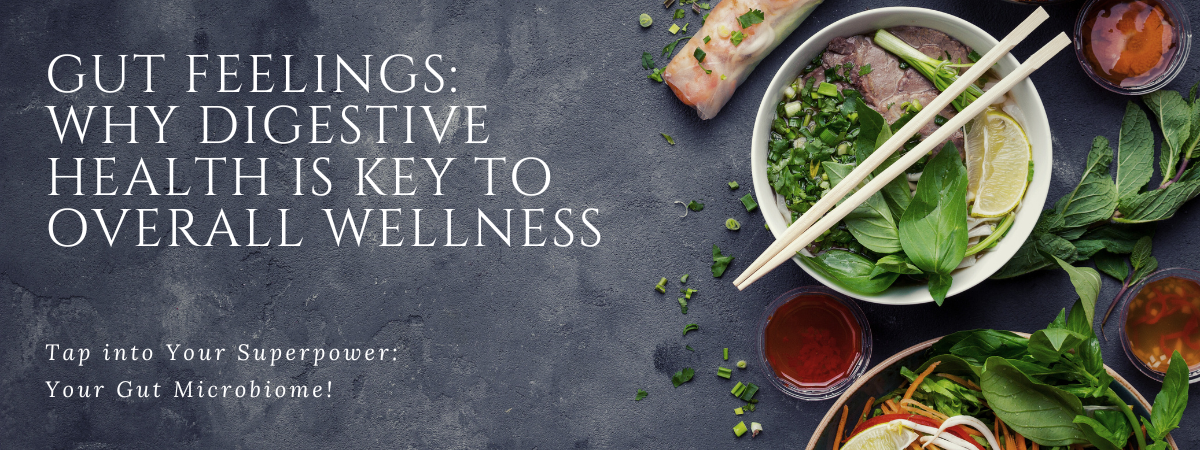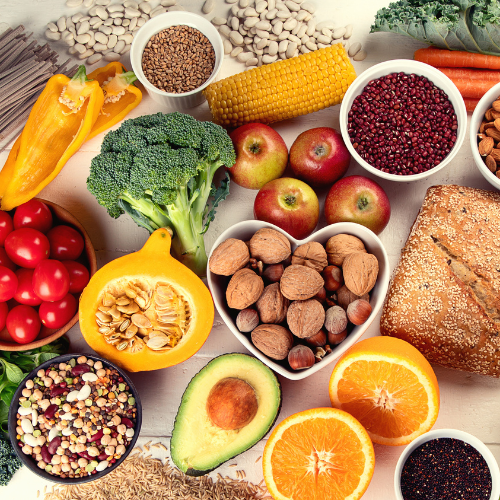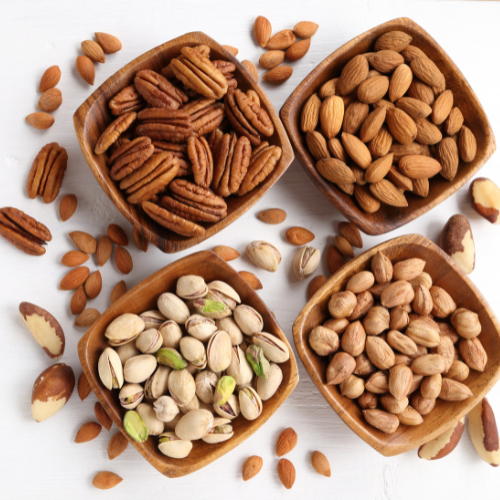
Anna Duke, MS, RD, LDN
Diversity Is Key to Gut Health

Fiber not only supports GI health, but also lowers cholesterol and blood sugar. A diverse microbiome has been linked to improved gut health, stronger immune function, and reduced risk of chronic GI conditions.
Wondering how to hit 30+ plant foods a week? Plant foods include fruits, vegetables, whole grains, legumes, nuts, and seeds—think quinoa, oats, chickpeas, flaxseeds, almonds, and more.

Gut Health and Immune Function

1. Homeostasis
A healthy gut supports immune balance by regulating inflammation.⁴ When the microbiota is disrupted, it can contribute to autoimmune issues or lower immunity.
2. Metabolites
Gut microbes produce immune metabolites—compounds that reduce inflammation and help keep the immune system functioning well.
3. Defense
A thriving microbiome creates a protective barrier against harmful bacteria by competing for space and nutrients.
The Gut-Brain Connection
You’ve likely heard of the gut-brain connection—and for good reason. This is one of the most explored areas in both neuroscience and nutrition research. The gut and brain communicate through multiple pathways:
- The Vagus Nerve – Sends real-time updates from your gut lining directly to your brain. Certain gut microbes may even influence mood and behavior.
- Microbial Metabolites – These produce mood-regulating neurotransmitters like serotonin, dopamine, and GABA. Up to 90% of serotonin is produced in the gut!⁵
- The Immune System – Inflammation in the gut can influence cognition, mood, and mental health.
- Endocrine Hormones – Gut microbes help regulate hormones like ghrelin and leptin that affect hunger, stress, and energy levels.
Sample Gut-Healthy Meal Plan
- Breakfast: Oatmeal with chia seeds, blueberries, and walnuts
- Morning Snack: Apple with peanut butter
- Lunch: Brown rice bowl with tofu, broccoli, zucchini, and carrots
- Afternoon Snack: Greek yogurt with flaxseed and raspberries
- Dinner: Salmon with lentils and mushrooms


Anna Duke
MS, RDN, LDN
Anna was born and raised in Raleigh, North Carolina. She pursued her passion for nutrition… READ MORE
References
1. Cohen S. If you want to boost immunity, look to the gut. UCLA Health. 2021.
2. Wang J, Tang H, Zhang C, et al. Dietary fiber and gut microbiota in human health. Trends Microbiol. 2022;30(12):1010–1021.
3. McDonald D, Hyde E, Debelius JW, et al. American gut: an open platform for citizen science microbiome research. mSystems. 2018;3(3):e00031-18.
4. Belkaid Y, Hand TW. Role of the microbiota in immunity and inflammation. Cell. 2014;157(1):121–141.
5. Cryan JF, O’Riordan KJ, Sandhu KV, Peterson VL, Dinan TG. The microbiota-gut-brain axis. Physiol Rev. 2019;99(4):1877–2013.
